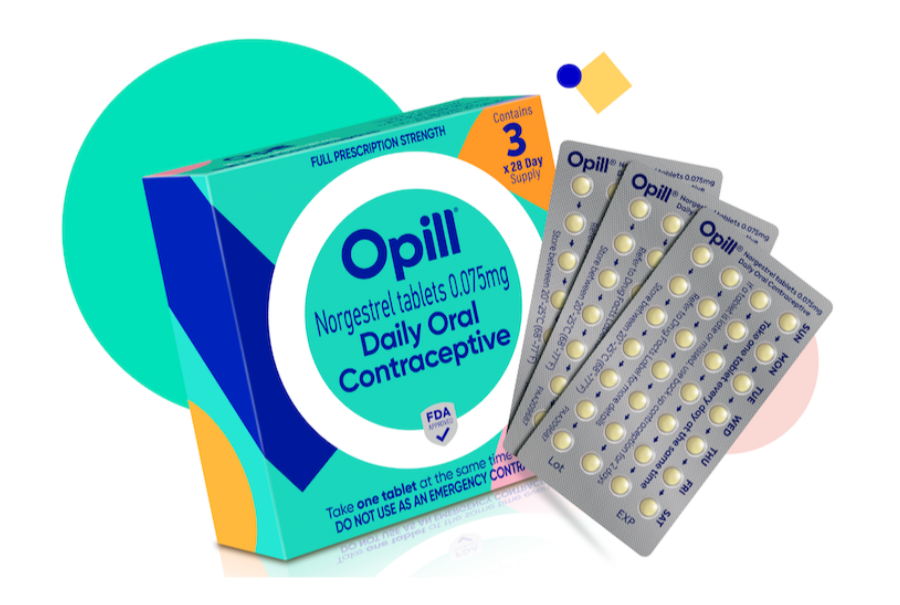Access To Birth Control: Exploring The Impact Of Over-the-Counter Options Post-Roe

Table of Contents
Increased Accessibility of Birth Control
Over-the-counter birth control offers the potential to dramatically improve birth control access for underserved populations. Currently, many individuals face significant barriers to accessing contraception, including geographical limitations (particularly in rural areas), financial constraints (lack of insurance or high co-pays), and transportation difficulties. OTC access could dismantle these barriers, fostering greater reproductive autonomy.
- Improved access for rural communities: Many rural areas suffer from a shortage of healthcare providers, making regular doctor visits for prescriptions difficult. OTC birth control would eliminate the need for these appointments.
- Reduced reliance on insurance coverage: Insurance coverage for birth control varies widely, leaving many uninsured or underinsured individuals without access. OTC availability removes this financial barrier.
- Increased convenience and privacy: Obtaining birth control OTC offers increased convenience and privacy, allowing individuals to manage their reproductive health without the necessity of a doctor's visit or a potentially judgmental interaction.
- Potential for earlier initiation of birth control: Easier access could encourage younger individuals or those newly sexually active to initiate birth control sooner, improving their reproductive health outcomes.
These factors contribute to a significant increase in birth control access, enhancing reproductive healthcare for a broader segment of the population. Improving accessibility is paramount to ensuring equitable family planning opportunities.
The Financial Implications of Over-the-Counter Birth Control
The financial implications of making birth control available OTC are significant, impacting both individuals and the healthcare system. While the exact cost of OTC birth control remains to be seen, the potential for cost savings is substantial.
- Potential for lower out-of-pocket costs: Prescription birth control can be expensive, with high co-pays and medication costs. OTC options could dramatically reduce out-of-pocket expenses.
- Reduced healthcare expenditures: Increased access to birth control could lead to a reduction in unintended pregnancies, resulting in lower healthcare costs associated with prenatal care, childbirth, and related complications.
- Impact on individual budgets: For low-income individuals, the cost of birth control can be a significant burden. OTC options could make family planning more affordable, freeing up limited resources for other essential needs.
- Potential for increased affordability for low-income individuals: Government assistance programs could potentially cover the cost of OTC birth control, making it more accessible to those who need it most.
Cost-effectiveness is a key argument in favor of making birth control OTC. Reducing financial barriers could contribute to improved public health outcomes and decreased strain on the healthcare system.
Addressing Concerns about Misinformation and Self-Medication
While increased accessibility is crucial, concerns regarding misinformation and self-medication are valid. The potential for incorrect usage or reliance on unreliable information is a risk that necessitates proactive measures.
- Need for comprehensive patient education materials: Clear, accessible, and multilingual educational materials are crucial to ensure safe and effective use of OTC birth control.
- Importance of pharmacist counseling and support: Pharmacists can play a vital role in providing guidance, answering questions, and ensuring patients understand the correct usage and potential side effects of their chosen method.
- Role of public health campaigns in promoting safe use: Public health campaigns can raise awareness, address common misconceptions, and encourage responsible birth control use.
- Addressing potential for misuse and incorrect self-medication: Addressing these risks through education and readily available professional guidance is key to mitigating potential harm.
A robust public health strategy focusing on patient education and pharmacist involvement is essential to ensure the safe and effective use of over-the-counter birth control.
The Legal and Regulatory Landscape of Over-the-Counter Birth Control
The path to making birth control available OTC involves navigating a complex legal and regulatory landscape. The FDA approval process for OTC medications is rigorous, demanding extensive safety and efficacy data.
- FDA approval process for OTC medications: The FDA has specific guidelines for over-the-counter medications, including those related to safety, labeling, and efficacy.
- State-level regulations impacting birth control access: State laws may also affect access to birth control, potentially creating inconsistencies across different regions.
- Potential legal challenges: The availability of OTC birth control could face legal challenges from various groups.
- Comparison of different regulatory models (e.g., US vs. other countries): Examining how other countries regulate OTC birth control can inform policy decisions and potential pathways for reform.
Understanding the legal and regulatory hurdles is essential to developing effective strategies for increasing birth control access.
Conclusion: The Future of Birth Control Access Post-Roe
The potential for over-the-counter birth control to reshape reproductive healthcare in the post-Roe era is undeniable. While concerns about misinformation and self-medication require careful consideration and proactive mitigation strategies, the benefits of increased accessibility and affordability are substantial. Improved birth control access is crucial for ensuring reproductive rights and promoting positive health outcomes. We must advocate for policies that prioritize both accessibility and safe, responsible use of birth control methods. Learn more about the issue, support organizations fighting for reproductive rights, and promote the safe and responsible use of birth control options. Let's work together to ensure everyone has access to the family planning resources they need.

Featured Posts
-
 Neverovatna Pobeda Runea Nad Povredenim Alcarasom U Barseloni
May 17, 2025
Neverovatna Pobeda Runea Nad Povredenim Alcarasom U Barseloni
May 17, 2025 -
 Navigating Late Student Loan Payments And Their Credit Consequences
May 17, 2025
Navigating Late Student Loan Payments And Their Credit Consequences
May 17, 2025 -
 Srbi Kupuju Stanove U Inostranstvu Popularne Destinacije I Trendovi
May 17, 2025
Srbi Kupuju Stanove U Inostranstvu Popularne Destinacije I Trendovi
May 17, 2025 -
 Bayern Munichs Academy System Angelo Stillers Breakthrough And Future Challenges
May 17, 2025
Bayern Munichs Academy System Angelo Stillers Breakthrough And Future Challenges
May 17, 2025 -
 Live Stream Ny Knicks Vs Brooklyn Nets April 13th 2025 Tv Channel Game Time And Details
May 17, 2025
Live Stream Ny Knicks Vs Brooklyn Nets April 13th 2025 Tv Channel Game Time And Details
May 17, 2025
